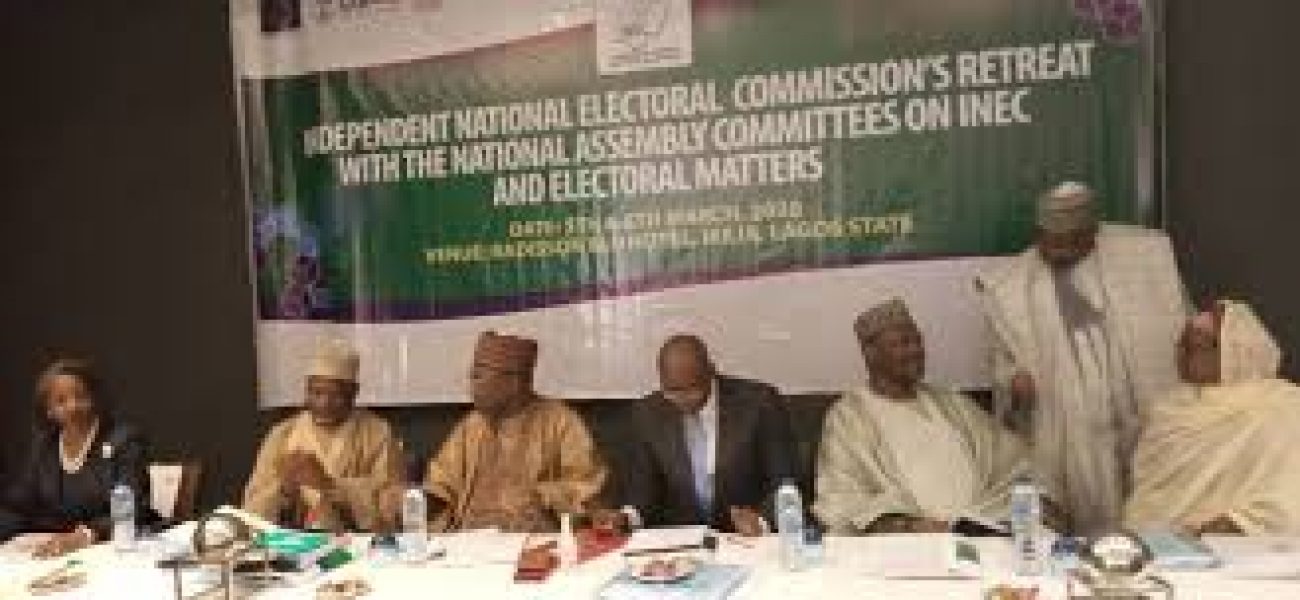The retreat of the Independent National Electoral Commission (INEC) saw members of the Senate Committee on INEC and the House of Representatives Committee of Electoral Matters working towards an improved electoral framework for Nigeria. The Electoral Act Amendment Bill 2019 sponsored by the Deputy Senate President, Ovie Omo-Agege seems to have been at the core of the discussions at the meeting. Omo-Agege, while speaking at the meeting, underscored that the effects of court judgments on pre-election matters constituted a need for electoral reforms. INEC Chairman, Prof. Mahmood Yakubu made the point that the electoral reform process could see the removal of encumbrances to the deployment of technology in elections, especially in the accreditation of voters and the transmission of results during elections.
The National Electoral Offences Commission Bill, which passed second reading in the Senate on Wednesday, March 4 has been welcomed as a possible response to the menace of rising electoral offences in the country. Among other provisions, the Bill proposes an imprisonment term of 20 years or a N40million fine for destruction of electoral materials by any person during elections. It also proposes an imprisonment term of 10 years or a fine of N40million or both for any person who incites violence during election. It further proposes a 20 year imprisonment term without an option of fine for a judicial officer , officer of a court or tribunal who is found to have prevented electoral justice before, during or after an election. The Bill appears to have provided punitive measures which should serve as sufficient deterrents. However, the attitude of security agencies who will be responsible for arresting offenders remains an issue of concern, as diligent prosecution of offenders will only be possible where the Police and other agencies deployed for election duty discharge their responsibilities in a non-partisan manner.

